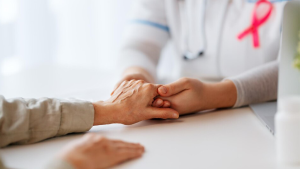Providing Care and Comfort: Supporting Loved Ones Through Cancer
When someone you care about is diagnosed with cancer, it can feel overwhelming. As they begin chemotherapy treatment, you may wonder how best to offer support during this challenging time. While every person’s needs are unique, there are several meaningful ways you can provide comfort and assistance to your loved one. From practical help with daily tasks to emotional encouragement, your presence can make a significant difference in their cancer journey. This article will explore effective strategies for supporting a family member or friend undergoing chemotherapy, helping you navigate this difficult situation with compassion and care.
Understanding the Cancer Caregiver Role
As a cancer caregiver, you play a crucial role in supporting your loved one through their cancer treatment. Your responsibilities may include managing medications, coordinating care, and providing emotional support. It’s essential to communicate effectively with the healthcare team, advocate for your loved one, and help navigate the complex healthcare system. Remember that caregiving can be both rewarding and challenging. While it may lead to personal growth and stronger family bonds, it’s crucial to prioritize self-care to avoid burnout. Seek support when needed and don’t hesitate to ask for help from other family members or healthcare professionals.
Providing Emotional Support for Your Loved One
Be an Active Listener
As a cancer caregiver, one of the most powerful ways to provide emotional support is through active listening. Create a calm, private setting and give your full attention. Maintain eye contact, allow for silences, and avoid interrupting. Acknowledge their feelings without judgment, even if they become upset.
Offer Practical Assistance
Supporting a loved one through cancer treatment often involves practical help. Prepare meals, run errands, or assist with transportation to appointments. Respect their independence while letting them know you’re available. Coordinate with others to create a robust support system.
Provide Ongoing Emotional Support
Continue your support even after treatment ends, as uncertainty may persist. Encourage them to join support groups or speak with an oncology social worker. Stay connected through regular check-ins, and engage in normal conversations to maintain a sense of normalcy.
Helping Your Loved One Through Chemotherapy Treatments
As a cancer caregiver, your support is crucial during chemotherapy. Offer practical assistance like grocery shopping, laundry, or childcare to ease their burden. Accompany them to appointments, taking notes to help remember important information. Prepare easy-to-reheat meals, considering their changing tastes and dietary needs.
Provide emotional support by being a good listener. Create a relaxed environment for open conversations, letting them lead without interrupting. Remember to engage in normal discussions too, offering moments of levity when appropriate.
During cancer treatment, small gestures can make a big difference. Send thoughtful texts or emails to show you’re thinking of them. Consider assembling a self-care gift bag with comforting items like unscented lotion or warm socks to help manage side effects.
Taking Care of Yourself as a Caregiver
As a cancer caregiver, it’s crucial to prioritize your own well-being while supporting your loved one through cancer treatment. The American Cancer Society emphasizes the importance of self-care to prevent burnout and maintain your health. Make time for regular breaks, exercise, and healthy meals. Don’t hesitate to seek emotional support from friends, family, or professional counseling services. Joining a support group can provide valuable connections with others facing similar challenges. Remember, taking care of yourself enables you to provide better care and emotional support to your loved one during their cancer journey.
Finding Additional Resources and Support
Accessing Financial Assistance
As a cancer caregiver, it’s crucial to explore financial support options. The Cancer Financial Assistance Coalition provides information on various resources, including government programs like Medicare and Medicaid. Additionally, many pharmaceutical companies offer patient assistance programs to help cover medication costs during cancer treatment.
Connecting with Support Networks
The American Cancer Society offers numerous support services for those affected by cancer. Their 24/7 Cancer Helpline provides guidance and emotional support from trained specialists. Online communities like the Cancer Survivors Network allow patients and caregivers to connect with others sharing similar experiences, fostering a sense of community during challenging times.
Utilizing Practical Services
Many organizations provide practical assistance to ease the burden of cancer treatment. The American Cancer Society’s Road to Recovery program offers free rides to appointments, while their Hope Lodge program provides lodging during treatment. These services can significantly reduce stress for both patients and caregivers, allowing them to focus on healing and providing essential emotional support.
Conclusion
As you support your loved one through chemotherapy, remember that your presence and care make a profound difference. By offering practical help, emotional support, and a comforting environment, you provide an invaluable lifeline during this challenging journey. Stay informed, be patient, and practice self-care to maintain your own strength. Your unwavering support can significantly impact your loved one’s well-being and treatment outcomes. Though the road may be difficult, your compassion and dedication will shine through, bringing hope and comfort in times of uncertainty. Together, you can face this challenge with resilience, love, and the knowledge that you are not alone in this fight against cancer.
Disclaimer: The content for this article is for informational purposes only and is not a substitute for professional medical advice, diagnosis, or treatment. Always consult your oncologist with any questions regarding a medical condition. Do not disregard medical advice or delay seeking it based on information from this site

